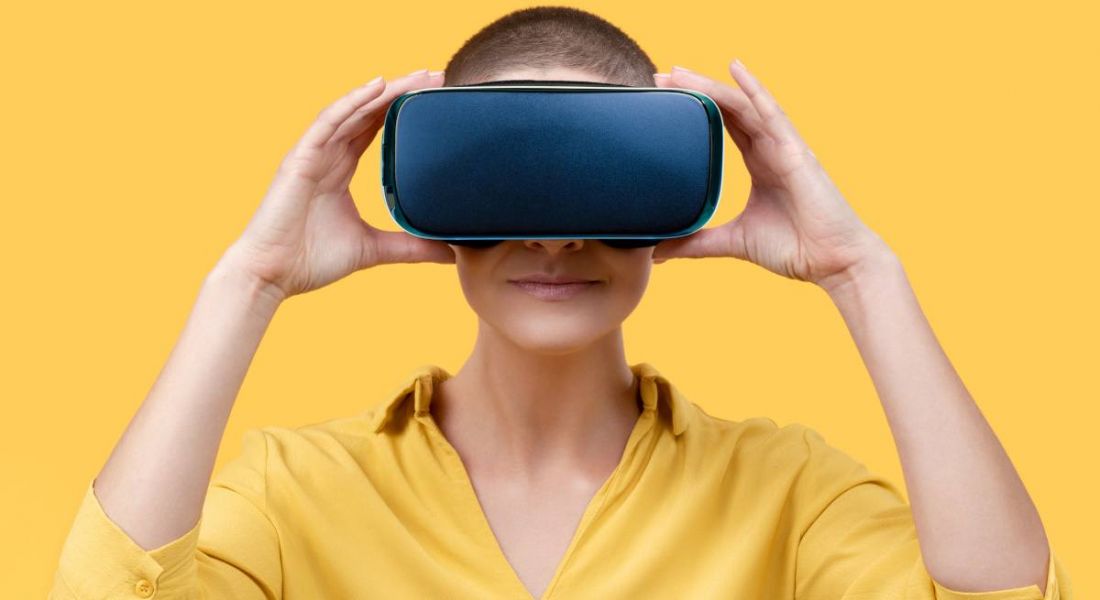Lewis Silkin Ireland’s Linda Hynes explores some of the legal issues that may come up if the future of work is in the metaverse.
The metaverse is a virtual world, that uses augmented and virtual reality (VR), where people can meet and interact with one another. For many employers, the first experience of it may come from using VR tools to holding conferences and events.
Microsoft has said it will be adding 3D virtual avatars and environments to Teams this year so it may be coming to a workplace near you soon. Eventually, employees may spend more time doing their jobs in a virtual world, which could be another pivotal change in the workplace, following other changes brought about by the Covid-19 pandemic.
The metaverse offers many benefits, for example the ability to work remotely in a more connected way with colleagues – but it also brings up a range of new Irish employment law issues and challenges.
Diversity, inclusion and avatar design
You need an avatar to take part in the metaverse. In the online gaming world, choosing a character or avatar is mainly about digital escapism.
When the metaverse reaches workplaces, it’s more likely that people will choose more photoreal avatars – ones that look like themselves or, at least, how they perceive themselves to be. Avatars, however, may generate some issues around diversity and inclusion.
An early issue for employers could be jokes or offensive comments about people’s choice of avatar, particularly given the initial novelty of VR in the workplace. This could fall under the category of bullying, harassment or sexual harassment under the Irish equality legislation.
There could also be disputes about avatars which deliberately poke fun at others, for example an avatar which looks like a public persona but with certain traits emphasised.
Irish employment law would allow employers to discipline employees for such inappropriate behaviour, although HR departments may need to develop and enforce guidelines around avatars and ways of working in the metaverse, as happened with social media use when it became an everyday part of the workplace.
Irish equality law currently recognises nine protected grounds against which a person should not be discriminated. These include gender, disability, race and age. Some of these grounds may be visible in real life and others may not, but the metaverse could disrupt this.
Which protected grounds will be visible and which will not in the new VR world? Oculus says it is looking at subtle differences and emphasising just how customisable its avatars are going to be.
The invitation to pick an avatar that reflects the real you raises a range of diversity issues. Will some employees gain the benefit of picking avatars that express their real gender identity? Will others find ways to show characteristics that they cannot easily show in real life, such as autism?
Will others be frustrated by not being able to select an avatar that represents their combination of protected characteristics? When would it be OK for employees to ‘try on’ protected characteristics they don’t have?
What about recruitment exercises that use VR? Are these issues which employers will be expected to regulate and what will it mean, for example, for unconscious bias which is a problem that already exists in workplaces?
Research shows that women are more likely to experience motion sickness when using VR. How will this be dealt with by employers? If VR as part of the working day is insisted on by the employer, is this discriminatory towards women? Could it widen the gender gap in workplaces if female employees don’t want to engage in VR because it makes them feel ill?
Online harassment applies in metaverse
Irish employment equality legislation has a wide definition of sexual harassment, which is any form of unwanted verbal, non-verbal or physical conduct of a sexual nature. Harassment in relation to any of the protected grounds is also prohibited as is any form of unwanted conduct related to any of the discriminatory grounds.
In both sexual harassment and harassment, the conduct is defined as having the purpose or effect of violating a person’s dignity and creating an intimidating, hostile, degrading, humiliating or offensive environment for the person.
This could include the workplace in the metaverse. Employers can be held vicariously liable for acts of bullying, harassment and discrimination of employees carried out by employees on social media sites so the same would extend to the metaverse. Proper training and measures to reduce potential metaverse bullying and harassment will need to be considered.
Metaverse misconduct
Many types of misconduct in the metaverse will be covered by existing employer policies and Irish employment law, but policies may need to be amended to make it clear that working in the metaverse is still a workplace.
For example, colleagues who are abusive to each other in a virtual environment would be subject to normal disciplinary rules. Unfair dismissal law will apply in the same way it does now and conduct in the virtual workplace will be subject to investigation and fair procedure as it is with ‘real’ working – although investigating the VR environment could present logistical challenges for employers.
Will new types of misconduct emerge in the metaverse? For example, if the metaverse is going to include non-player characters (NPCs) like the online gaming world, ie, characters not controlled by an employee, will being rude to an NPC virtual assistant count as an act of misconduct, or will attacking an NPC virtual assistant represent an act of harassment?
Can employees be disciplined for this behaviour? Will this type of behaviour go against the culture and values of the organisation?
Other metaverse issues
The metaverse raises a host of other workplace issues, which may not be addressed by existing employment laws.
Jurisdictional issues: People in the virtual world can be anywhere in the real world, so whose employment laws will apply?
Risks to confidential information and security: In the ‘anyone-could-be-anyone’ world of the metaverse, will there be more hacks or corporate espionage?
Health and safety: Can you wear a VR headset all day long or will there be health and safety risks? Should the risk of cyberbullying in the metaverse be considered by employers in their risk assessments under health and safety law?
Ownership in the metaverse: Will non-compete and IP clauses need updating? Could metaverse providers access or use company information which is shared within their environment?
Employment status and working time: As new ways of working emerge, which ones will be defined as employment relationships? If you are online as your avatar, is this working time that should be recorded and monitored? Working time obligations are already in conflict with remote and flexible working patterns that have emerged since the Covid-19 pandemic began, how will they deal with the metaverse?
Being avatar ready
While we won’t see workplace relations claims brought by Warlock999 naming Bigboss1 as a respondent for a while, this could happen in the future. Previously, employers and employment law dispute forums and courts have had to catch up with the use of social media platforms by employees.
The law will no doubt also need to get to grips with the range of new issues that will come with working in the metaverse. A VR workplace could offer exciting opportunities, but employers will need to be conscious of the good and the bad when their employee avatars assemble in the future.
By Linda Hynes
Linda Hynes is a partner at Lewis Silkin Ireland in the employment, immigration and reward division.
10 things you need to know direct to your inbox every weekday. Sign up for the Daily Brief, Silicon Republic’s digest of essential sci-tech news.




